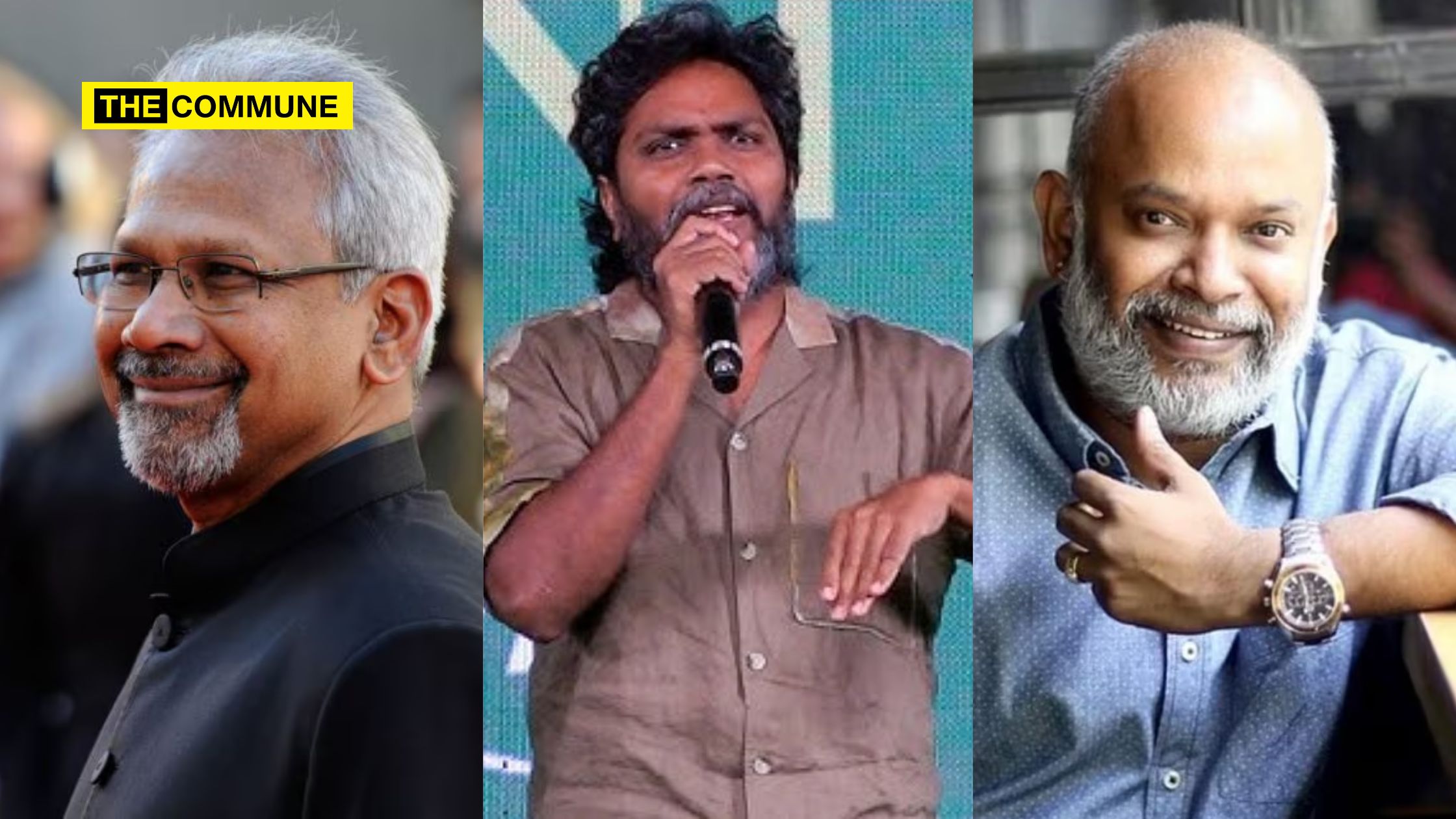
Director Pa Ranjith is once again in the spotlight due to a new controversy from a recently concluded trailer launch event held on 19 August 2024. Ranjith stirred up a storm by making sly jibes at directors Mani Ratnam and Venkat Prabhu with whom he worked as an assistant director. He didn’t stop there, continuing with an appeal for greater emphasis on Dalit politics in cinema, arguing that such discussions are lacking and should be prioritised without much effort from him.
The speech received criticism on social media, as Ranjith appeared more focused on lamenting Mari Selvaraj’s successes.
Mari Selvaraj, acclaimed for his films “Pariyerum Perumal” and “Karnan,” is preparing to release his new movie, “Vaazhai.” The film is set in his childhood and captures Selvaraj’s moments of joy and sorrow. It features a Santhosh Narayanan soundtrack and Theni Eswar cinematography.”Vaazhai” stars Ponvel, Raghul, Kalaiyarasan, Nikhila Vimal, and Dhivya Duraisamy.
At the event, Pa Ranjith remarked that during his initial days as Assistant Director he never got the “space” to discuss his politics and the kind of films he wanted to make. “If I had worked with a director like Ram, I think I could have conveyed my politics more effortlessly in my first film. I am happy you (Ram) created that for Mari Selvaraj and others.” , he said.
This comment was seen as a sly jibe at his mentor Venkat Prabhu, with whom he worked as assistant director.
Then, Pa Ranjith revealed that his initial interaction with Mari Selvaraj arose from Selvaraj’s concerns over a namesake portrayal of his character in ‘ Madras’. This encounter led to Ranjith discovering Selvaraj’s work. He then highlighted how “Pariyerum Perumal” underscored the need for open discussion and the importance of sharing such stories with the public.
Ranjith criticised certain audience members and movie critics, accusing them of trolling films rather than engaging in meaningful dialogue. Ranjith said, “Over the past ten to twelve years, we have been discussing and fighting it, but have we received justice for that? Has everyone accepted it as valid, or are they dismissing it and questioning why we are making these films in cinema? Is that needed? Whenever they get a chance, some audience and cinema critics seize the opportunity to troll us. Our films are praised in the same breath that they are subjected to slur trolling. But do you think we are afraid of this? No, we have faced many challenges since childhood.”
Then he continued and said, “I don’t have courage like Mari Selvaraj; he dares to make films about his pain, but I could not.” He mentioned that he didn’t want to focus solely on his community’s pain. For instance, he was moved to tears when he recreated a personal experience in “Attakathi”. In contrast, Mari Selvaraj chose a harrowing subject for his debut film. Ranjith even questioned Mari about his readiness for the public’s reaction. However, he realised that Mari’s bravery lies in his storytelling. Mari remains calm, composed, and adept at ensuring his conversations are commercially successful. Ranjith is impressed by Mari’s dedication.
As Ranjith praised Mari’s growing conviction and the evolution of his cinematic language with each film, he began to weave in his political views. He criticised certain audience members who struggle to accept the portrayal of Dalit experiences and the retribution it represents.
Ranjith said, “Another criticism is levelled at Mari, the crowd applauding as he shows the pain in his films, but when he shows his characters fighting back, like in Karnan, they say he glorifies violence. Is it not worse? What should I do? What should I do? Will you teach me continuously? Will you school me continuously to speak, stand, go that way and show us like this? I’m not understanding it.” He urged dissenters to reflect on their attitudes and question the status quo. “Why aren’t you curious why he feels compelled to speak out? Why do those in privileged positions expect to be challenged only in the most refined manner? You’re comfortable watching films that question you as long as they do so subtly and maintain your sense of goodwill. Why should we cater to your comfort zone?”
In closing, Ranjith praised Mari Selvaraj, highlighting his decision to screen “Vaazhai” to leading filmmakers, indirectly quoting prominent figures like Mani Ratnam and documenting their responses. He lamented that Mani Ratnam, after watching his film, did not contact him to criticise or praise him, but Selvaraj cleverly made Mani Ratnam watch and record his observation.
Taking jibes at Mani Ratnam, Ranjith remarked, “A filmmaker I greatly admire has not acknowledged watching my film for a long time. Although he watched it, he hasn’t mentioned it that “he has watched the movie”. I’m aware of this as people who watched with him said to me. However, he (Mari) made him to watch the film and even recorded a video about it, which I find quite impressive.”
Subscribe to our Telegram, WhatsApp, and Instagram channels and get the best stories of the day delivered to you personally.




